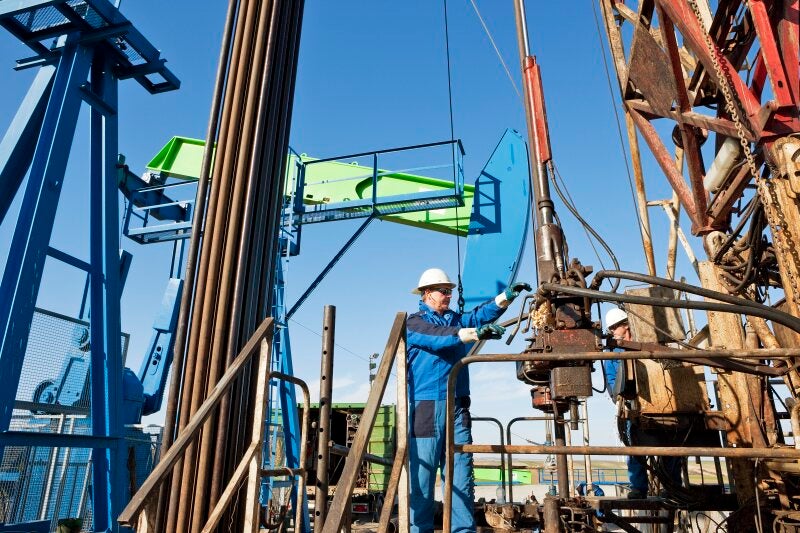
Executives from Austrian oil and gas company OMV spoke today about its long-term move into the downstream chemicals industry. The company said the deal was “the biggest in the history of Austria”, and will keep its business sustainable in a low-carbon world.
The company confirmed its deal to buy the majority stake in chemicals company Borealis yesterday. The $4.68bn agreement sees OMV controlling 75% of the business after buying 39% from Mubadala.
Borealis manufactures base chemicals, fertilisers and feedstocks. It is the second-largest producer of polyolefin chemicals in Europe, with a profit of $1.06bn (€960m) last year. OMV plans to move to the chemical industry and will consolidate Borealis into the OMV group.
CEO Rainer Seele told a press conference the purchase was part of the company’s strategy to be less reliant on fossil fuel products. “We want to follow through the lifecycle of our products. We will make things to go through the circular economy, and we want to be a player in the recycling industry.”
Asked about how else the company might expand, Seele said it was not interested in stepping into electricity generation.
“We don’t want to be an electricity company, OMV doesn’t want to rediscover that role,” Seele said. “That is not part of our strategy or our competencies. We are now in a business where we now have a relatively high use of fossil fuels because technologically, there are no alternatives.”
How well do you really know your competitors?
Access the most comprehensive Company Profiles on the market, powered by GlobalData. Save hours of research. Gain competitive edge.

Thank you!
Your download email will arrive shortly
Not ready to buy yet? Download a free sample
We are confident about the unique quality of our Company Profiles. However, we want you to make the most beneficial decision for your business, so we offer a free sample that you can download by submitting the below form
By GlobalDataOMV moves business along product lifecycle
Shortly after the Borealis deal was announced as completed, the company announced another large financial transaction. OMV said it would sell its share of pipeline builder and operator Gas Connect Australia. It currently owns 51% of the business, with the rest owned by AS Gasinfrastruktur.
OMV said: “With this potential sale, OMV intends to exit the regulated gas transport business in line with its strategy and engage in proactive portfolio management to secure continued profitable growth. At the same time, OMV will remain active in international gas logistics, in the gas storage business, and in the gas supply and trading business.”
The company’s third announcement yesterday was the sale of its German filling station business. Seele said the stations were still profitable, but they were exiting the business due to changes at its Burghausen Refinery.
The refinery used to make fuel products but has now changed to produce petrochemicals. Seele said this was a good example of how the company would look to develop a business that naturally works with OMV’s strengths, and would divest where it did not find a synergy.
He also firmly dismissed the idea the company would sell its filling stations in Austria. The CEO said the company’s Austrian stations “give us our identity, they are why people know who we are”.
On coronavirus, the company said it had not seen a noticeable difference in demand from Europe, with one exception. Following the US ban on travel from Europe, kerosene demand has fallen due to the lower number of transatlantic flights.
However, the company said Chinese demand was now returning to normal, and its filling stations had not seen any noticeable panic buying.
“People only have one tank to fill, after that, they have to drive away. People aren’t bringing jerry cans, and they aren’t going in and buying all the Mars bars,” he said.
Seele also said that a net-zero target was “an attractive business prospect” being discussed at board level. The company plans to make a further announcement on it to investors in the summer.



